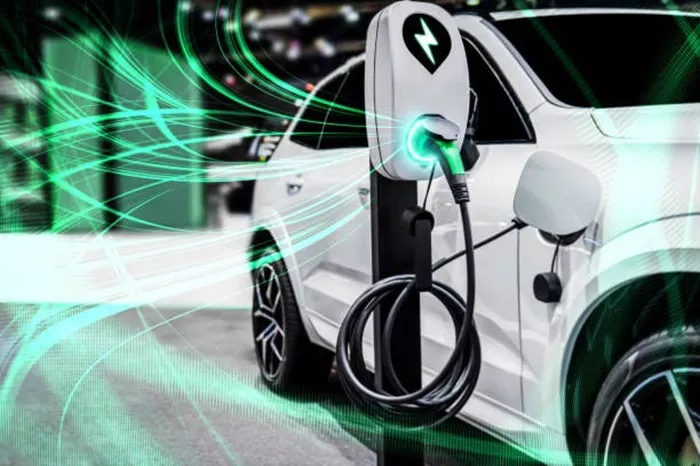As Hong Kong races towards a greener future with electric vehicles (EVs) and autonomous driving technology, the city’s motor insurance sector is undergoing a significant transformation. The government’s ambitious incentives to boost EV adoption are driving innovation, but the transition comes with a complex set of risks and challenges for insurers. As these developments unfold, the insurance industry is evolving to meet the needs of a rapidly changing motor landscape.
Government Incentives Accelerate EV Adoption
Hong Kong’s government is aggressively promoting EV adoption through the establishment of the Steering Committee on the Promotion of EVs (SCPEV). This initiative, chaired by the Finance Secretary, is focused on enhancing energy efficiency, promoting environmental benefits, and creating new business opportunities within the motor industry. However, despite the clear environmental advantages, insurers are increasingly aware of the risks tied to this shift.
Tax Concessions and EV Infrastructure Expansion
The government’s EV strategy includes extending the first registration tax (FRT) concession for EVs until March 2026. Additionally, plans are underway to significantly expand the availability of public EV chargers and transition all new private cars to electric by 2035. These incentives are designed to make EVs more accessible and encourage widespread adoption throughout Hong Kong.
Rising EV Numbers Reflect Growing Popularity
As of June 2023, Hong Kong had approximately 96,600 EVs, representing 10.5% of the total vehicle population. The Transport Department has also approved 326 EV models from 16 economies, spanning private cars, motorcycles, and public and commercial transport vehicles. This growth underscores the increasing demand for electric vehicles in the city.
Insurers Adapt with Specialized EV Coverage
The shift toward electric vehicles is forcing motor insurance companies to develop specialized products to address the unique needs of EV owners. Many insurers now offer policies that cover battery damage, charging facilities, and even premium discounts based on the type of EV or its battery capacity. These tailored products reflect the evolving demands of the EV market.
Zurich Hong Kong Leads the EV Insurance Sector
Zurich Hong Kong is leading the charge in EV insurance growth, reporting a 22% year-on-year increase in gross written premiums and a 23% rise in motor policies in 2023. The company’s market share of EV policies surged by an astonishing 193% from December 2022 to December 2023, demonstrating its strong position in the EV insurance sector.
Challenges of Extreme Weather Highlight EV Risks
Despite Zurich’s success, extreme weather events have underscored the risks associated with EVs. A typhoon and heavy rainstorm in September 2023 resulted in HK$1.9 billion in insurance claims, with EVs facing higher repair costs due to their complex technology. This illustrates the challenges insurers face as the motor industry evolves.
Positive Growth Trends Supported by Government Incentives
Zurich’s positive growth in the EV insurance market is bolstered by the government’s extension of tax incentives for EVs priced below HK$500,000. These incentives are expected to drive long-term growth in the EV market, further boosting Zurich’s position as a leader in the sector.
Zurich’s Commitment to Sustainability and ESG Integration
Zurich Hong Kong is not only focused on financial growth but also on sustainability. As the first insurer to pledge to the Paris Agreement, the company incorporates Environmental, Social, and Governance (ESG) principles into its operations. This includes integrating ESG factors into investment decisions, risk management, and underwriting practices.
Sustainable Initiatives Extend to EV Battery Recycling
Zurich’s EV insurance policy includes a service to help customers responsibly recycle their EV batteries, supporting the broader transition to a low-carbon economy. The company’s sustainability efforts are also measured through both qualitative and quantitative metrics, ensuring that their impact is both significant and measurable.
The Decline of Petrol Cars and Rise of EVs
According to CBRE Research, the gradual de-registration of petrol cars is expected over the next two decades. By 2033, new energy vehicles, primarily EVs, are projected to account for 43% of all registered cars, rising to 84% by 2046. This shift will have a profound impact on the motor industry, creating new opportunities and challenges for insurers.
Autonomous Vehicles Set to Transform the Market
The autonomous vehicle market in the Asia-Pacific region is also on the rise. Valued at $34.8 billion in 2023, the market is expected to reach $305.3 billion by 2032. Autonomous vehicles offer enhanced safety features, reduced traffic accidents, and solutions to the public transportation driver shortage, but significant hurdles remain, including infrastructure investment and regulatory challenges.
Regulatory Approaches Vary Across Asia-Pacific
Different countries within the Asia-Pacific region are at varying stages of regulating autonomous vehicles. China, for instance, has introduced nationwide guidelines for autonomous driving road tests, while Japan has updated its Road Traffic Act to include automated driving technology. These regulatory differences will shape the pace and nature of autonomous vehicle adoption in the region.
Conclusion
Hong Kong’s journey toward a greener and more technologically advanced motor industry presents both opportunities and risks for insurers. As EV adoption accelerates and autonomous vehicles gain traction, insurers must remain flexible and innovative in their approach. Balancing sustainability goals with the challenges of higher repair costs and regulatory hurdles will be critical to navigating the future of motor insurance in the city. The road ahead may be complex, but with the right strategies, Hong Kong’s motor industry is poised for a transformative shift towards a more sustainable future.
Related Topics:
-
Chip Design Firm Synopsys Surpasses Fiscal Q3 Expectations And Raises Forecast
-
Snowflake Shares Decline Despite Strong Q2 Earnings; Guidance Falls Short
-
Stock Market Extends Rally, But Two Indicators Suggest Potential Pause
-
Zoom Reports Strong Earnings Exceeding Expectations; Revenue Growth Anticipated

